The Chinese Civil War of 1946-1949: The Rise Communist Party and Mao Zedong
Good day ladies and gentlemen! Today i will be sharing my latest work which is another Historical essay! This article was a requirement in my major class. My focus this time around is within the East Asia. We were given different questions to answer and this was the question that needs to be addressed.
Question: Discuss the fundamental factors of for the final result of the Chinese Civil War

photo source
This historical essay will try to examine the Chinese Civil wars from 1946 to 1949 and thus the I will also be explaining the nature of the Chinese Civil Wars to understand fully the fundamental factors that leads to the result of the Chinese Civil wars. In addition, I will fully rely on books and online articles as well as journal to support the arguments in this Historical essay.
The Bloody War
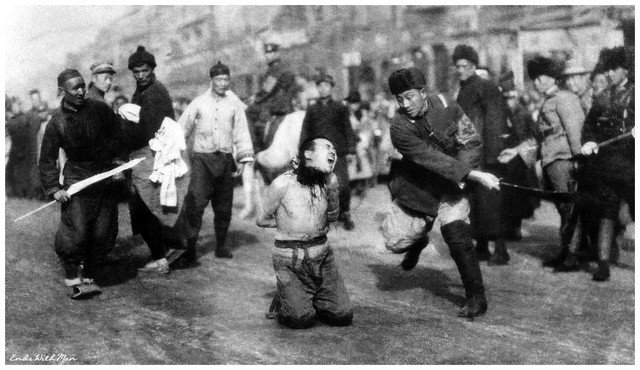
photo source
The Chinese Civil War started, in many respects, with the Shanghai Massacre and the collapse of the First United Front in 1927. The main phase of the Chinese Civil War, however, is generally regarded as the period spanning late 1945 to October 1949. After the Japanese surrender in August 1945, the Chinese Communist Party (CCP) and the Nationalists agreed to peace talks and an abortive ceasefire. So what really happened during the Chinese Civil War?
Accordingly, the Chinese Civil war was a transforming event in world history. To sum up everything the Chinese Civil War was a war fought between the Kuomintang (KMT)-led government of the Republic of China and the Communist Party of China (CPC) and is a two phase war but the breaking point really stated in 1946 up until it ends on 1949. We can easily view that the war represented an ideological split between the communist CPC and the nationalist KMT.
Kuomintang and the Nationalist Party
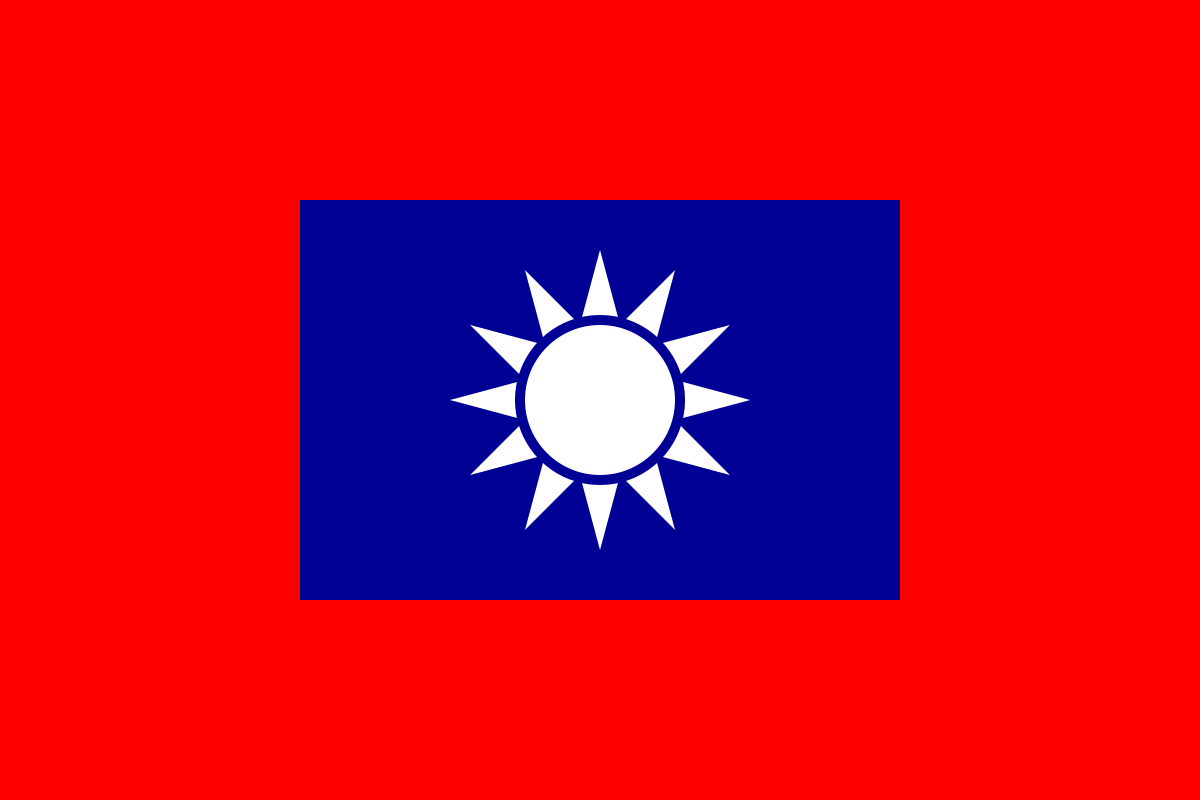
photo source
While the Nationalist, or Kuomintang -KMT [Guomindang], government and its army, led by Chiang Kai-shek, had borne the brunt of the fighting, the war had given the Chinese Communist Party (CCP) unprecedented opportunities for growth, reflected in the explosive expansion of its forces from around 30,000 men in 1937 to 1 million regular troops and 2 million militiamen in 1945.Mao Zedong (Mao Tse-tung) immediately ordered his troops, called the People's Liberation Army (PLA), to seize land and equipment from surrendered Japanese forces. When Soviet forces evacuated Manchuria (China's North-eastern Provinces, which had been the Japanese puppet state Manchukuo) in 1946, prior notification of the CCP enabled the PLA to seize most of the land and arms left by Japan in that region also. It was a strong clash of the two opposite sides with its irreconcilable goals led to resumption of a bitter civil war.
The Communist Party of China
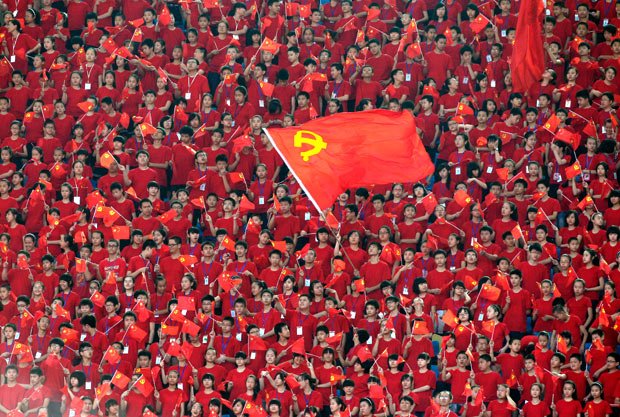
photo source
So this long war has finally ended On October 1, 1949, Chinese Communist leader Mao Zedong declared the creation of the People’s Republic of China (PRC) as for my source. The announcement ended the costly full-scale civil war between the Chinese Communist Party (CCP) and the Nationalist Party, or Kuomintang (KMT), which broke out immediately following World War II and had been preceded by on and off conflict between the two sides since the 1920’s. The creation of the PRC also completed the long process of governmental upheaval in China begun by the Chinese Revolution of 1911. The “fall” of mainland China to communism in 1949 led the United States to suspend diplomatic ties with the PRC for decades.
So what are the factors led to Mao Zedong and CCP's victory?
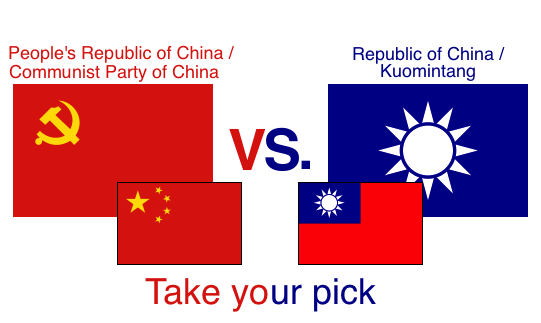
photo source
Upon knowing the nature of the long Chinese Civil wars and struggle of China, we are left hanging with the question on what are the possible factors that dictated or led to this kind of outcome. To answer this question it is very essential that we both look and analyse the two sides or party especially on the flaws of the wars.
So to solve this problem let us examine first the side of CCP or the Chinese Nationalist party on their victory. These are the following factor that I gather from my sources:
The victory of the Chinese Communist Party over the reactionary power of Chiang Kai-shek, its occupation of the entire Chinese mainland, and the establishment of the “People’s Republic” (or the “People’s Democratic Dictatorship”) has marked a great and even a monumental change in modern Chinese history, and has also caused profound changes in the Far East and in international relations.
Factors why CCP was triumphant
1.Peasant’s role and strong support on CCP

photo source
Majority of my readings would always top this among all the factors that dictated the phase and result of the civil war. Many of us wonder how the CCP gained the trust and support of the peasant workforce, right? According to the sources, Communist Policy was critical in gaining the support of the peasants. They promised Land Reforms that would give the peasants land. This was hugely popular amongst the impoverished peasant class in China and led to huge numbers of peasants volunteering for service during the Civil War: 5.4 million were mobilised for the Huaihai Campaign alone.
The CCP’s victory was mainly due to the majority of peasant support. While Chiang Kaishek said of the peasants that their task was “to provide us (GMD) with information concerning the enemy, food, comforts and soldiers for our armies”, Mao Ze Dong said of the peasants that they “are the backbone of the peasant associations… To attack them is to attack the revolution”. Evidently there is a stark contrast in the opposition leader’s view of peasants. While Chiang believed that they were dispensable, Mao praises and recognizes the peasants-in contrast with the way they had been neglected.
2.CCP’s Guerrilla Tactic and Revolutionary Warfare
.jpg)
photo source
Another people I think would disregard this, but upon reading further sources and books, the CCP strength when it comes to their warfare and tactics were just incredibly brilliant. Communist victory was due to the better training of soldiers, with clear understanding of the CCP’s goal, resulting in a more effective and disciplined fighting force. While the GMD had an overwhelming stronger and bigger military advantage, they were not able to able to defeat the CCP because Mao’s use of guerrilla warfare was more effective. GMD were reliant on the foreign aid had been received by the GMD, in the form of weapons, tanks, and well-trained groups. However, while CCP had Soviet military guidance, they were not dependant. By employing guerrilla warfare tactics, which mostly involved attacking at supply lines and using hit-and-run tactics, the communists were slowly able to cripple the nationalists, and as people defected and deserted.
3.Mao’s Leadership
.jpg)
photo source
In big battles, the role of the leaders will always be put into the lines. Clearly it was evident that Mao’s leadership did prevail over Chiang. Even small mistakes or decision made can be very costly. Mao held on to Manchuria, building a strong base, from there he pressed on with three massive campaigns in the winter of 1948-1949, showing his belief in his judgment, that was supported by the Communist ideology. In addition, Mao is very commendable for every decision he made this time. Mao understood that to win the support of the peasants- essentially 95% of China’s population, was vital to fulfilling the peasant-led revolution, and win the Civil War. Mao's leadership was central to the communist success. It was his leadership in the Long March and his innovative guerrilla tactics that allowed the CCP to survive and then to broaden its support base in Yan'an.
4.The Soviet help
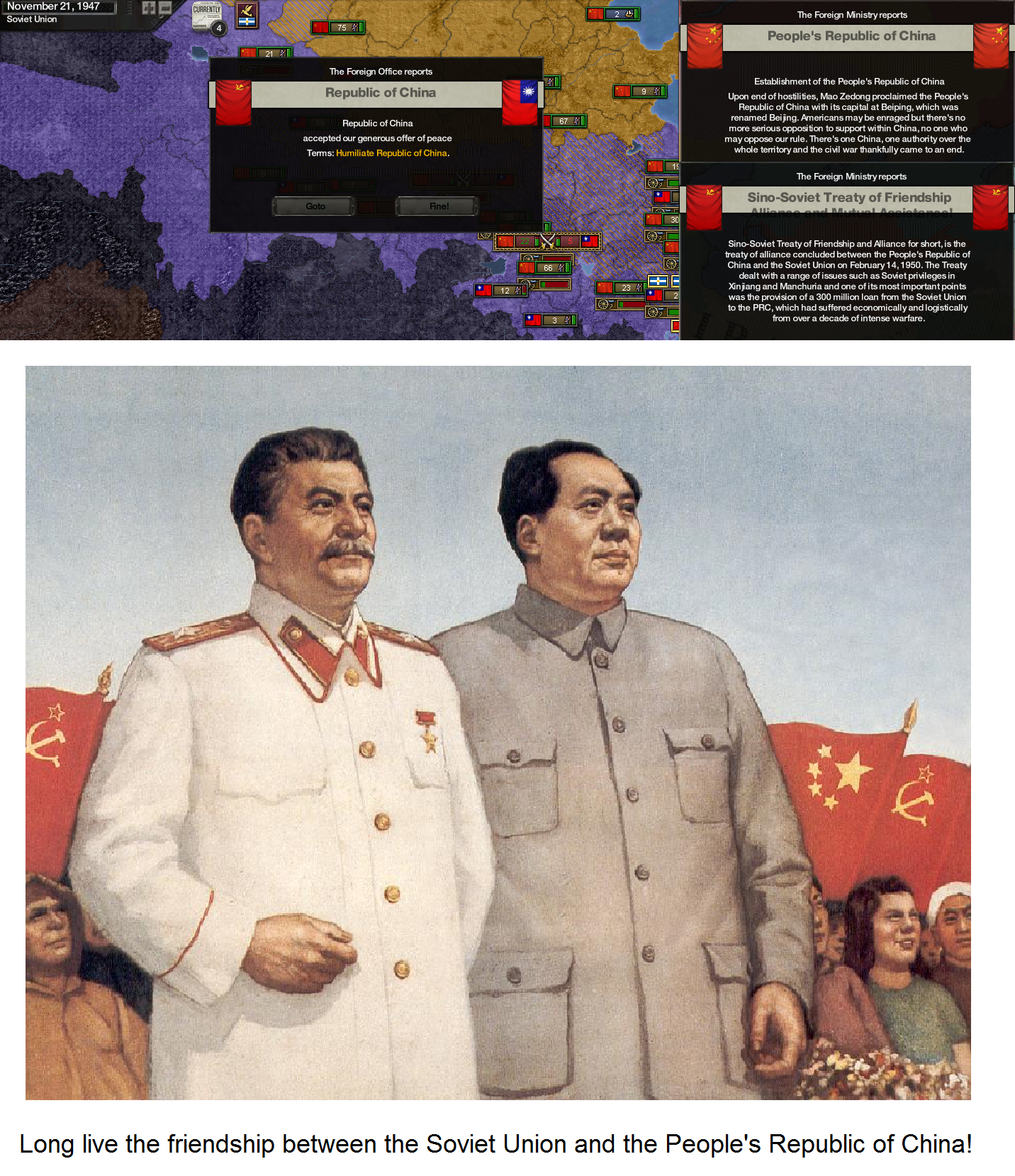
photo source
To add this, I would also give emphasize on the aid of the Soviet Union to CCP as a big help but not really the fundamental factors leading to its victory. To note that Soviets had been rather reluctant to support the CCP, and did not in the end give them the military and economic assistance that the GMD received from the USA. Nonetheless, their support still made a big impact.
Factors why Nationalist Party or Koumintang FAILED!
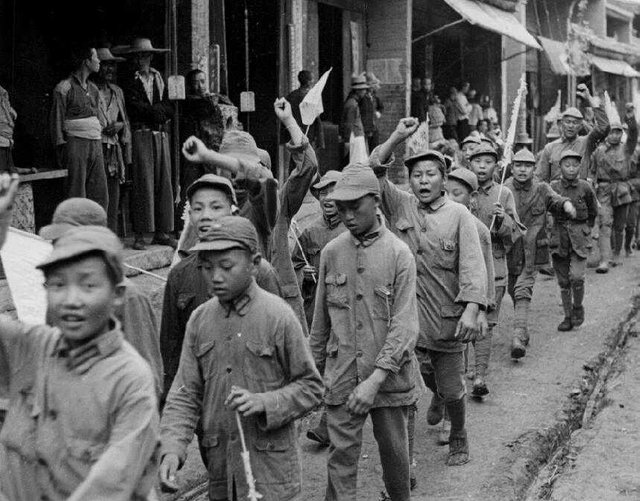
photo source
Now that i have provided the arguments supporting CCP emphatic victory, let us now examine the other side, Chiang and the Nationalist party on their unfortunate lost in the Chinese Civil war. Throughout my research on this, I was completely stunned on how many flaws and mistakes were made by the Nationalist party. So these are the fundamental factors that dictated the phase of the war.
1.Chiang’s Poor Leadership
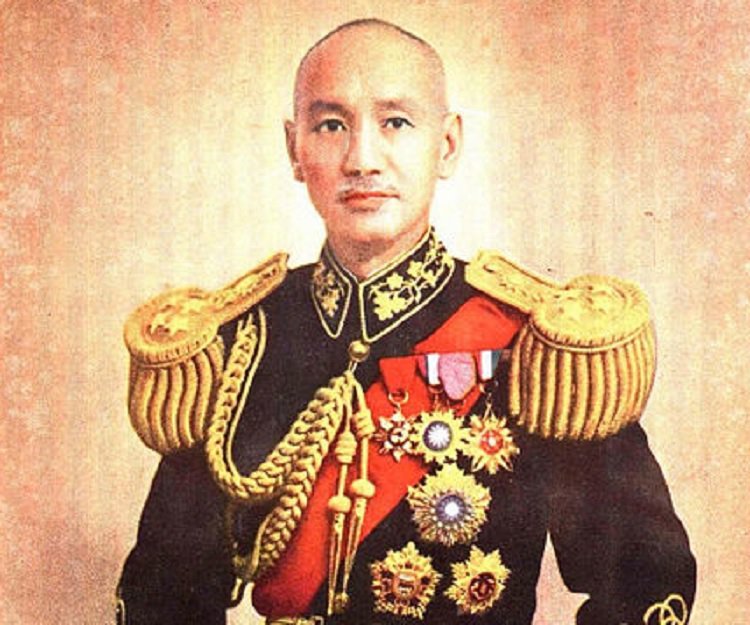
photo source
Under this, the researcher give certain distinction on Chiang’s poor leadership:
a.His faulty decisions
.jpg)
photo source
Historian Odd Arne Westad says the Communists won the Civil War because they made fewer military mistakes than Chiang Kai-shek and also because in his search for a powerful centralized government, Chiang antagonized too many interest groups in China. Furthermore, his party was weakened in the war against the Japanese. Chiang accordingly made many costly mistakes that either made negative remarks on his people.
b.Chiang poor military strategy
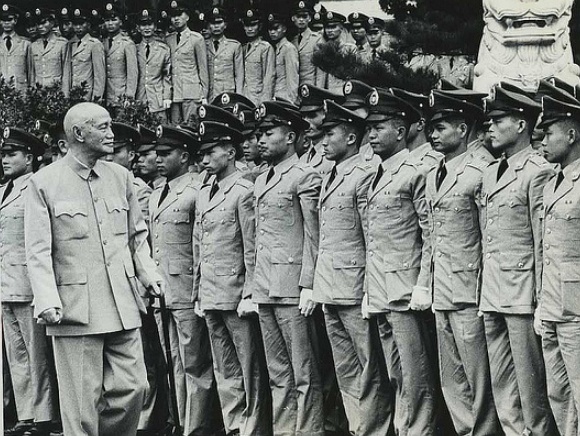
photo source
This might have been ok if the KMT could quickly crush the CCP and then use all sort of emergency measures . The problem was that under domestic and international pressure Chiang disbanded a large portion of his army, and the remaining forces were either former warlord troops of dubious loyalty, or newly mechanized troops which functioned poorly in the battle field that did not have the infrastructure to support them. Chiang launched several military operations against the CCP as the CCP were attacking his main supporters. He tried 4 times and was defeated each time.
2. Chiang's Corrupt Administration
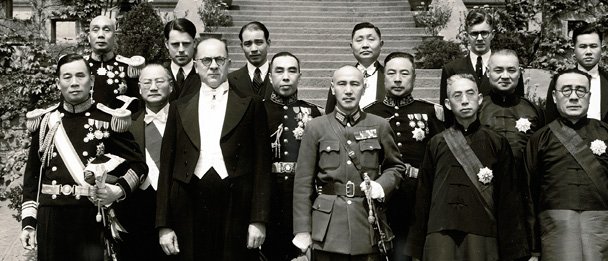
photo source
From what i have read the main problem had really started within their internal body of governance. Corruption, defined as the “illegal appropriation of public resources for private purposes”, plagued the Guomindang regime from the very beginning. historian would always point out this one.fficials who before 1927 had been poor suddenly enriched themselves. They built beautiful residences in the capital, spent “long weekends” in the modern, Westernized city of Shanghai, and their children were driven to school in limousines .Chiang Kai-shek himself acknowledged that his government was deeply corrupt.
3. America failed Intervention
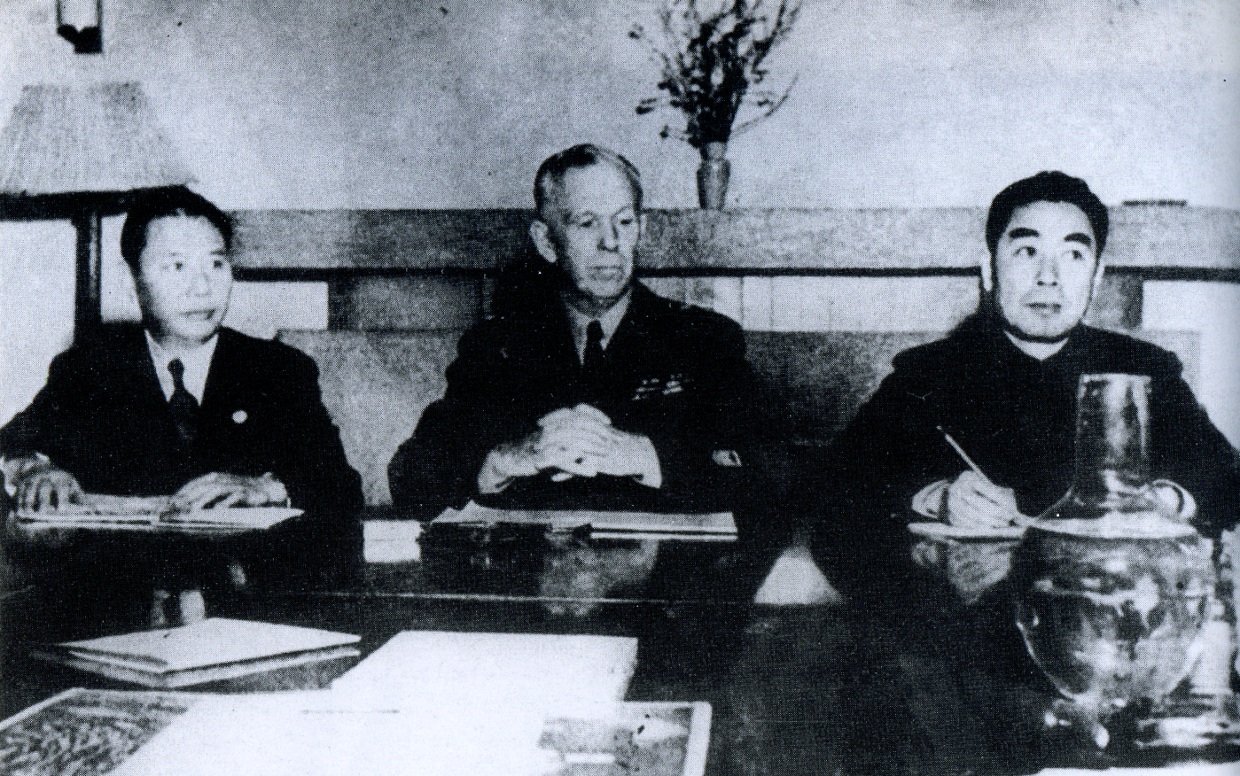
photo source
Fearing deep involvement in China, the United States attempted to deal with this and other issues primarily by negotiations between Nationalists and Communists, sponsored first by Ambassador Patrick Hurley (1945) and then by Gen. George C. Marshall (1945–47). Unrealistic to begin with, this approach was further undermined by a clear American tilt toward the Nationalists, made worse by the abandonment of the direct U.S. contact with the Communists that had been provided, for example, by the military “Dixie Mission” of 1944. But later on they supported the nationalist Party.The Americans had economic and strategic interests in China, and they had supported the GMD from the first phase of the civil war.USA provided Jiang with almost $3 billion in aid and large supplies of arms throughout WWII.
At the beginning of the second stage of the civil war, the Americans transported GMD forces by sea and air to the north of China, and US troops occupied Tianjin and Beijing to hold them until the GMD were ready. But it was still a failure.
Conclusion
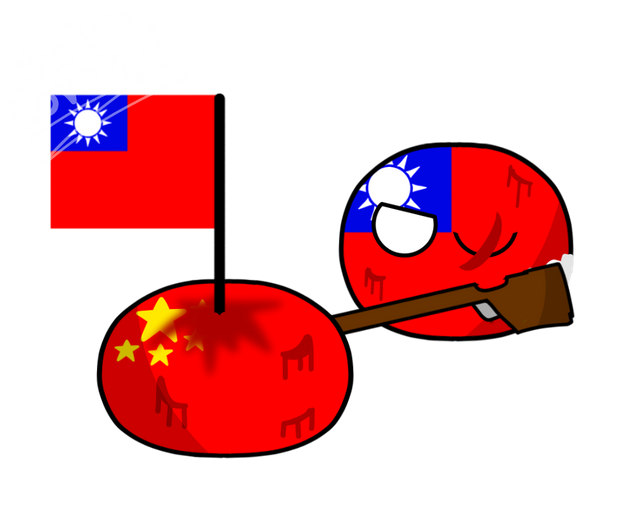
photo source
After understanding the nature of the long bloody civil war, i can conclude that Mao biggest victory was due to to amount of support he received from the peasant in which the nationalists failed to do so. We can now understand how mass supported played an essential role, right?
The root causes of the Guomindang’s downfall are to be found in the structural deficiencies of the system of government it established in 1927 and which it was never able to correct. Although these flaws were not sufficient to bring about its collapse, the anti-Japanese war and the civil war against the Communists further weakened the credibility and reputation of the regime, depriving it of its last basis of popular support.
China after the success of Communism
Right now , China is considered one of the most powerful country in the world, economically, politically and militarily. Indeed the Giant is awake and shocked the world.
Thank you so much for reading my article. I hope you have learned something!
Sources
1.Alpha History (2015) THE CHINESE CIVIL WAR. Retrieved on May 06 2018 from http://alphahistory.com/chineserevolution/chinese-civil-war/
2.Some, C. (2016) Chinese Civil War (1946 - 1949). Retrieved on May06, 2018 from http://crisissome.blogspot.com/2016/07/chinese-civil-war-1946-1949.html
3.Davies, P. (1998) China, Modern World Study: History 13-16 Project. Collins. London. 1990. P.125.
4.Schoolshistory.org.uk (2018) How did the Chinese Communists win the Civil War?.Retrieved on May 08, 2018 from Schoolshistory.org.uk/topics/world-history/mao-china-c-1930-1976/chinese-communists-win-civil-war/
5.Roberts, E.M (1970) Mao Zedong and the Communist Revolution. Taylor and Francis, USA. PP. 67-70
6.Fairbank, J.( 1998) History of China. Retrieved on May 12, 2018 from https://www.amazon.com/China-New-History-Second-Enlarged/dp/0674018281
7.Odd Arne Westad(2012)Restless Empire: China and the World Since 1750.Vintage Publishing, London, United Kingdom. p291
8.Lester H. Brune, Dean Burns, Richard Dean Burns(2003). Chronological History of U.S. Foreign Relations. Routledge, ISBN 0415939143)
Video
1.CrashCourse(2012)Communists, Nationalists, and China's Revolutions: Crash Course World History #37. Retrieved on May 13, 2018 from https://www.youtube.com
@therealwolf 's created platform smartsteem scammed my post this morning (mothersday) that was supposed to be for an Abused Childrens Charity. Dude literally stole from abused children that don't have mothers ... on mothersday.
https://steemit.com/steemit/@prometheusrisen/beware-of-smartsteem-scam
Congratulations! This post has been upvoted by the communal account, @steemph.cebu by zam398 being run at Teenvestors Cebu (Road to Financial Freedom Channel). This service is exclusive to Steemians following the Steemph.cebu trail at Steemauto. Thank you for following Steemph.cebu curation trail!
Don't forget to join Steem PH Discord Server, our Discord Server for Philippines.
You have been upvoted by the @sndbox-alpha! Our curation team is currently formed by @jeffbernst, @bitrocker2020, @jrswab & @teachblogger . We are seeking posts of the highest quality and we deem your endeavour as one of them. If you want to get to know more, feel free to check our blog.